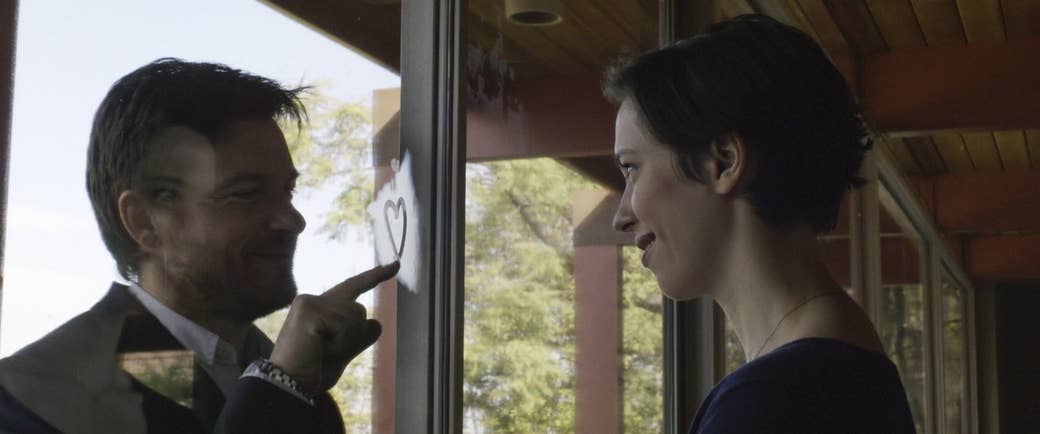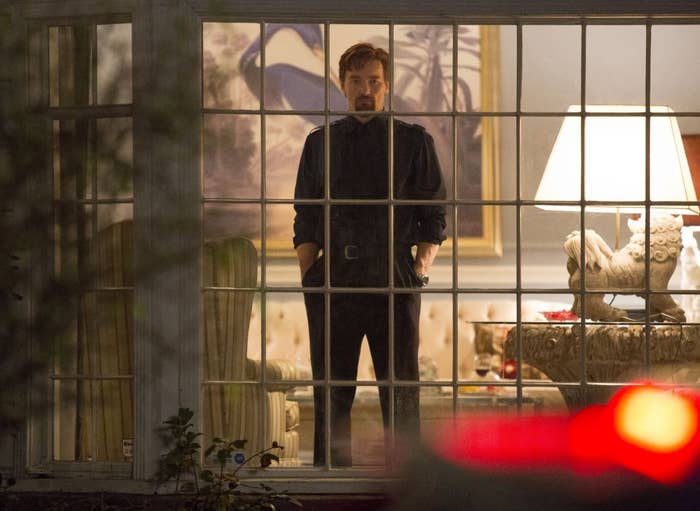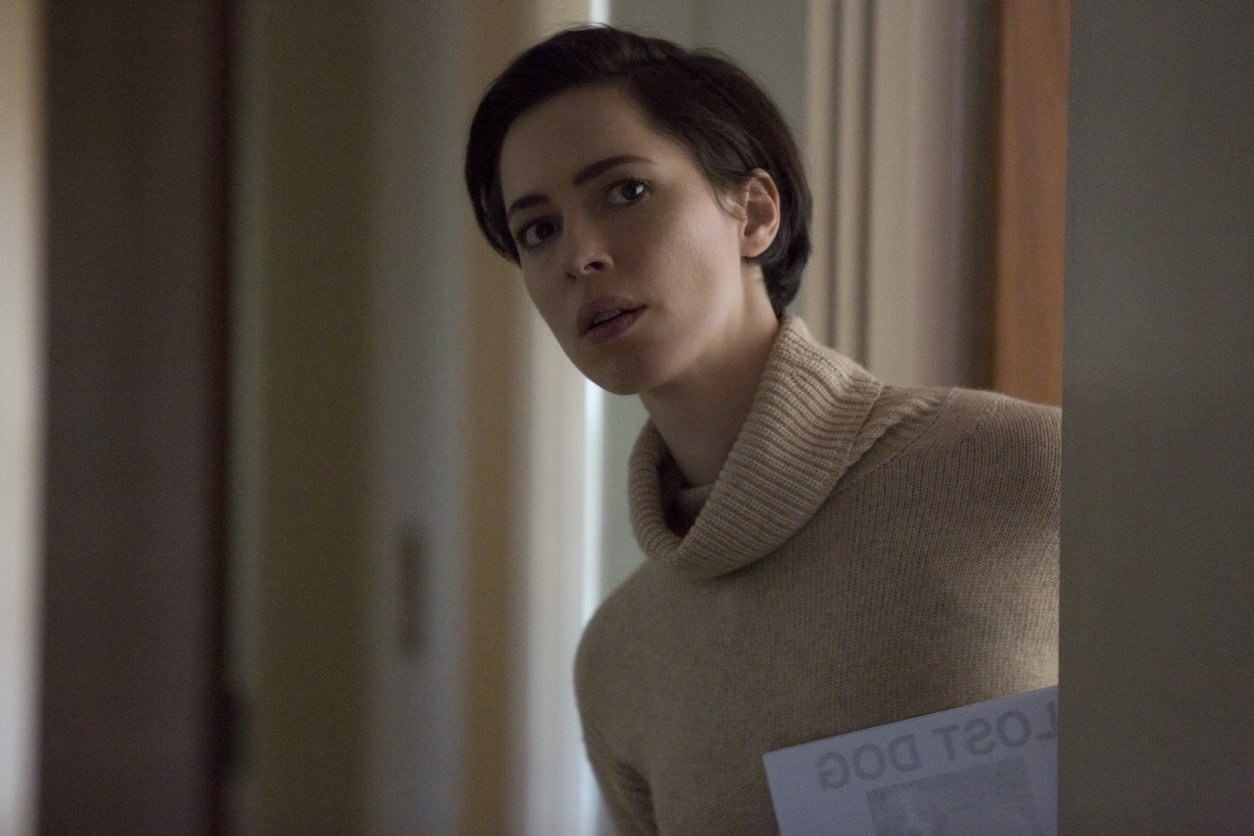
The Gift is a movie about two people who haven't managed to get past what happened in high school.
It's a concept that's more often the basis of arrested development comedies about late bloomers who finally come into their own, but there's nothing funny about how the past looms over the adults that Gordo (Australian actor Joel Edgerton, who also wrote the screenplay, making his directorial debut) and Simon (Jason Bateman) have become. The teenage cruelties they endured or inflicted upon others have shaped them in ways that are immediately obvious in Gordo, awkward in his outdated earring, badly dyed hair, and lack of personal boundaries, leaving overly thoughtful presents and dropping by for unscheduled visits; the teen outsider he used to be is visible in the grown man. It's less clear with Simon, a student body president turned startup exec who seems to have it all together until a run-in with Gordo starts fracturing his chipper persona and the nastier character he used to be (and maybe still is) starts showing through.
It's no wonder that the film filters its story through Simon's wife, Robyn (Rebecca Hall), who's the most reasonable person onscreen.

But she's also a clever update of an old-fashioned type of heroine who hasn't moved easily into the present day, for obvious reasons. Robyn is a Victorian hysteric in running shoes, a contemporary version of a character who goes back to The Yellow Wallpaper and on through Rosemary's Baby. She spends her days alone with the dog in the mid-century California house into which she and Simon recently moved, a beautiful place whose floor-to-ceiling windows also give it the unsettling look of a display case in which she's the object to be examined. And when she starts to feel unsafe there by herself, like maybe the place isn't all that secure, Simon tells her she's being silly — even though he knows more than he's told her about his old high school classmate.
Robyn is right to feel frightened — The Gift is a thriller, though enough of a slow burn that you wouldn't count on warming your hands over it. Unfolding in parallel to Robyn's experiences are growing tensions over unresolved history between Simon and Gordo, who she sees as nice and a little lonely despite her husband's scorn. But, like the fictional women who've preceded her, Robyn accepts the reality on which her spouse insists over the one she's actually experiencing, ceding to his explanations despite her growing anxiety. Past characters like this have been products of their era, subject to each period's patriarchal expectations, treated as fragile and infantilized — the 2010 remake of the '70s TV movie Don't Be Afraid of the Dark actually changed its main character from wife to little girl to explain why no one would take her fears seriously.

Robyn isn't a little girl, and she's not a fool, but she's living in a new state, dealing with a miscarriage, and coming off of a pill problem. She has insomnia and is susceptible to panic attacks. She has reasons to feel vulnerable and to want to lean on the man she married, though as the movie goes on, we trust him less and less. And most pointedly, she relates more to Gordo's experiences than to Simon's, having grown up unpopular and harassed herself, now holding on to stable adulthood with shaky hands.
The movie ends with a development that's a little too discordant with everything that's come before it, and with the slow shift of sympathy back and forth between the two men. But the scariest thing it has to offer is the idea that Robyn's been just as unable to get away from those formative experiences as the other characters in their cold war, even though she doesn't think of them — they're still guiding the relationships she's chosen and the lack of confidence she's had in herself. There are many ways to be bullied, and sometimes they come from someone assuring you everything he's done has been for your own good.
